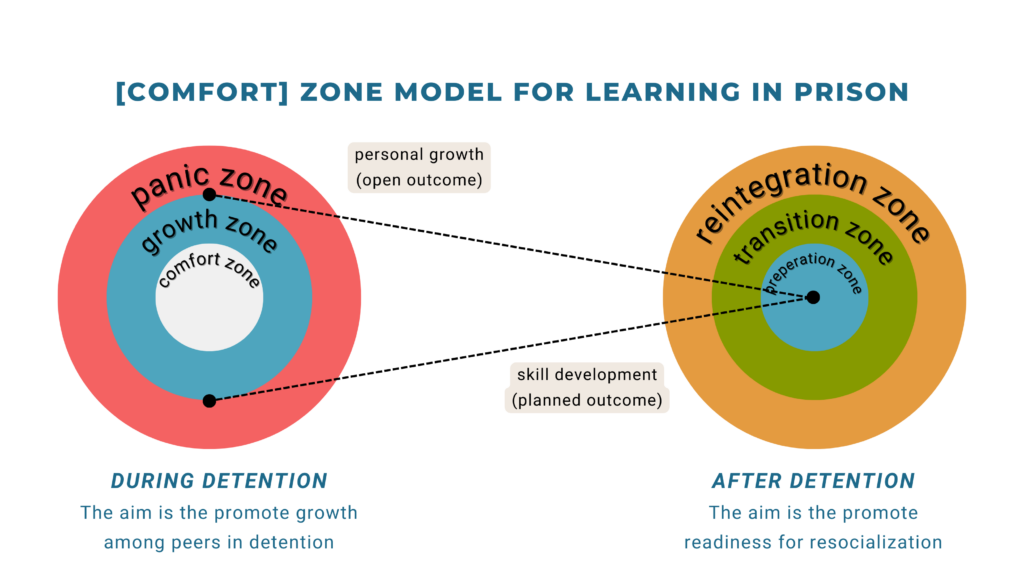


PERSPEKTIVE-Handbook
Elements of experiential education are used to identify, develop and strengthen prisoners’ skills in a practice-orientated and sporting manner. The handbook for experiential education activities should be mentioned here, which provides practical approaches for direct interaction with prisoners. This handbook includes clear objectives and describes various aspects in order to provide the participating prisons with detailed instructions for implementing experiential education methods. The main aim of the handbook is to promote the professional skills of prisoners. Four chapters discuss different facets of experiential education in the prison context.
PERSPEKTIVE-Handbook
PERSPEKTIVE-Handbook: Experiential education in the prison system. A handbook for the practice-orientated and sports-based promotion of professional skills for prisoners
07/2024 The table of contents for our PERSPEKTIVE handbook has been finalised and the first two editorial meetings were a complete success! We have finalised the overview of tasks for the entire duration of the project and are currently working on a collection of experiential education exercises specifically for prisons and its theoretical background.
Definition "Experiential education"
09/2024 The PERSPEKTIVE consortium has decided to draw up a common definition of “experiential education” as a basis for international and intercultural cooperation between the prisons and professionals on the same scientific foundation. This is orientated towards Erleben und Lernen. Einführung in die Erlebnispädagogik [Bernd Heckmair, Werner Michl, 1993]
“Experiential education is an action-orientated and out-of-the-ordinary method that aims to support people in their personal development through exemplary social and interactive learning processes in which they are confronted with physical, psychological and social challenges and to enable them to take responsibility for shaping their own current and future living environment.”
Comfort Zone Model

With pedagogical, psychological and professionally relevant expertise from the PERSPEKTIVE network, we have developed a model to help determine the applicability and effectiveness of experiential education exercises in the prison context. This is illustrated and explained in detail in the final product, the PERSPEKTIVE handbook. The starting point for this is the theory of Lev Vygotsky [Source: Vygotsky, L.S. (1978). Mind in Society: The Development of Higher Psychological Processes]

Funded by the European Union. Views and opinions expressed are however those of the author(s) only and do not necessarily reflect those of the European Union or the European Education and Culture Executive Agency (EACEA). Neither the European Union nor EACEA can be held responsible for them.
